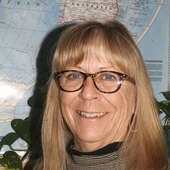- Research tips and McCook Brick Company- solid as a brick (12/16/24)
- Big Give appreciation and some railroad characters (11/15/24)
- George Randel becomes a landowner, gets married, and takes in a Buffalo Bill show (9/20/24)
- The memoirs of George F. Randel, early settler of Red Willow County (9/12/24)
- Vietnam War Memorial honors Nebraskans who served (6/13/24)
- McCook business promotions - just prior to 1893 stock market crash (5/30/24)
- Shall we dance? Meet you at the Gayway (12/8/23)
An 1873 pioneer’s song of the prairie
Wednesday, November 25, 2020
Before this was printed in an unknown newspaper in 1927, it was clipped and saved by John Irwin when printed in the Danbury news. It is attributed to G. T. Plumb of Marion noted as “one of our most interesting pioneers”.
“Come, all you enterprising tenderfeet. If you will listen to my song, I will try and not be tedious, nor will I detain you long: while I tell you how we used to do, way back in seventy-three, when we wore buffalo hocks for moccasins, skill off above the knee.
We came out to this country, when it was wild and free, and a jollier lot of fellows, you will seldom ever see. We breathed the air of freedom, there were none to make a fuss: we each were heirs of Uncle Sam, and it belonged to us.
We roamed these virgin prairies, from the Smoky to the Platte, no one was there to check our sway, for we had the whole thing pat. And when the stars would twinkle from the heavens’ mighty dome, we would think about our dear ones whom we’d left away back home.
Our neighbors were the red men, of many different types, they thought we were encroaching upon their sacred rights: the pale-face, as they called us, they said had come too soon, but all the same when we showed our teeth, they gave us plenty room.
Our game was the mighty buffalo of which thousands roamed the plains; and they were ours when we wanted them, and all they cost was our pains. We were armed with good Sharps rifles, and they were dandies, too, we caused many a beast to bite the dust for they sent the bullets true.
Now this noble beast was staple goods from his heels to the top of his head; and we gathered up his bones long after he was dead. His flesh was legal tender, his sinews made our threads, his tallow made our candles, and his robe we used for beds.
Our houses they were homely, - we had neither bricks nor planks,- they were only little dug-outs, which we made along the banks. Our furniture was the fireplace, grub-box and coffee can; but our flap-jacks looked enticing, as we flipped them in the pan.
We will name a few old timers just to be somewhat precise. And hope that none will be offended, for we will try and do it nice. If you find that we have missed a few, be sure we’re not much to blame, for it’s mighty hard to make a rhyme, to everybody’s name.
And we’ll begin with Johnnie Townley, with his coat of British arms. John always had the money, as well as diverse other charms; when we ask him why he brought so many guns along, he said he wanted to be ready, for the beggars when they come.
Then there was Samuel Messner, for short we called him Stub. Sam surely was a dead shot, and always there for grub. His partner, William Henton was, a boy as square as Brooklyn’s piers; Bill always washed the dishes, while Sam tended to the steers.
And one there was called Gene Dolph, he by a long shot wasn’t slow; and also, Gene a brother had, the boys called him Brier Joe. Of buffalo hides and wolf pelts, they always had a store; but I guess the boys never think of those times any more.
There were Jess and Barnett Ashton, from Indiana they both came; they came out to Nebraska, just to take a settler’s claim. Jess stayed at home and worked the mules, and tended to the flocks, while Barnett worked old North Platte, to keep grub in the box.
Then there was B.B. Duckworth, an all-round square man; he walked the whole way to North Platte to prove up on his land. And when it came to bagging game, Duckworth was pretty soon, for he busted all the gun he had, on the head of an old raccoon.
And also, there was H. C. Plumb, he was a nimrod mighty leery; he had no longing for the chase, for of buffalo he was wary. He said when they were good and dead, their beef made bully grub; but the very sight of live ones, would quickly chill his blood.
Now some of these old timers, have long since bit the dust; they have gone across the river, where their guns will never rust. And when I think about it, I feel sad I do declare, but boys, we’ll make the buffalo get, when we meet over there.
Now here I am among you yet, a relic of days gone by; a hayseed, so they call me now, but aught for praise care I; for my heart is filled with good old days, that I never more can see; the grand old days of the buffalo, the days of seventy-three.”
SWNGS Library will be closed until at least January 2021. Please contact us through Facebook for any questions you wish for us to research or use our on line site: www.swngs.org.

